|
When I was a young adult, my mom and I would discuss politics. When the discussion got heated, mom would say, “I totally disagree with you, but I will defend to my death your right to say it.” I was baffled; annoyed that she ended the debate but also affirmed. A close read of the Declaration of Independence helps me understand the depth and significance of what my mom meant. The Declaration of Independence is 1,337 words long, written by a committee of five with Thomas Jefferson, a delegate from Virginia, as the principal author. It was 1776; the Continental Congress had convened in Philadelphia and Jefferson drafted the declaration in his boarding room. Independence is not declared until the last paragraph. As the summation of the rationale for independence, this paragraph is worthy of our attention and consideration. 1. The delegates declare they are representatives of the colonies assembled “in congress.” 2. They appeal to “the Supreme Judge of the world” for the moral rightness of their action. 3. They speak in the name, and with the authority of, “the good People of these Colonies.” 4. They declare the colonies “free and independent states” severing all ties to the King of England and “the State of Great Britain.” 5. They declare that they have all the rights of an independent state. 6. Finally, in support of this declaration, our founding fathers, “with a firm reliance on the protection of divine Providence,” mutually pledged “to each other our lives, our Fortunes, and our sacred Honor.” I believe it was this mutual pledge, a pledge of life, fortune, and sacred honor, that my mom was getting at in our debates. We can disagree and debate vigorously if, and only if, we have a bond that connects us to each other deeper, and greater, than either of us. It is this mutuality that we must reclaim as citizens of the United States of America. When our founding fathers unanimously approved the Declaration of Independence on July 2nd, and then signed it on July 4, 1776, they were committing treason. They shifted their allegiance from the King of England to each other. Our founding fathers were far from perfect, but they were people of faith and principle. They had a clear, even reluctant, rationale for independence. Most of us know the beginning of the second paragraph, “We hold these truths to be self-evident…” God gives all individuals equality and the unalienable rights of life, liberty, and the pursuit of happiness. To secure these God-given rights, humans create governments that derive “their just powers from the consent of the governed.” The divine “right” is given to each person, not to a king. Consequently, when a government no longer secures these rights, then it is the right of the people; “it is their duty,” to “throw off” the abusive government and create a new one. Based on these principles, the founding fathers – as if they were prosecuting a case before a world court of independent states – identified 27 charges against the King of England. They concluded this list of charges with two additional paragraphs. One where they chronicle the many ways they attempted to address these grievances directly with the King. The second is on their efforts to engage their “brethren.” So, the second paragraph is the rationale based on the rights God gives to everyone, then the 27 grievances, paragraph three chronicles their appeal to the King, fourth is an appeal to their “brethren,” and the fifth and final paragraph is the declaration of independence. What about the first paragraph? It serves as a preamble. Independence breaks the bond with one country and establishes a new one, which “the Laws of Nature and of Nature’s God entitle them.” Respect for the “opinions of mankind” require that this new nation “declare the causes which impel them to the separation.” This review of the Declaration of Independence helped me appreciate what mom taught me fifty years ago. It has renewed my faith in the founding principles of our country – faith in God, equality, unalienable rights, the responsibility to create a government that secures those rights, and our pledge of mutuality. As Catholics we understand mutuality through the principle of solidarity which is grounded in the incarnation itself, “the Word became flesh and made his dwelling among us” (John 1:14). Pope Francis, in Fratelli Tutti (no. 66), encourages us to “rediscover our vocation as citizens” because we are “called to direct society to the pursuit of the common good.” Our bishops, in Forming Consciences for Faithful Citizenship (2023), applied this truth to our country. “The perennial role of the Church in public life is proclaiming timeless principles: the infinite worth and dignity of every human life, the common good, solidarity, and subsidiary.” Democracy is not for the faint of heart. As Catholics, we wholeheartedly embrace the challenges and the promise of democracy because we believe it is only possible through faith – in God and each other.
2 Comments
Missionaries around the world were excited on October 22, 2017 when Pope Francis called for an Extraordinary Missionary Month in October 2019. The fruit of that month lacks luster, but the seeds are heavy with promise. Some of us were grieved by the lack of attention given to mission, hoping that the Church would give it more time and energy. Mission always leads to a personal relationship with Jesus Christ. The beauty and power of mission is so often seen in the lives of the saints. Missionaries themselves know they need to expand and deepen their own human, spiritual, intellectual and pastoral formation in order to address the hopes and dreams, the griefs and anxieties of every human being. We hoped the people of God would be generous with their spiritual and financial support of mission. Considerable efforts were made by Mission Directors from around the country to lift-up mission within the local church. There were some wonderful celebrations – remembering the missionary roots of the diocese, sharing the missionary story, promoting all the ways the faithful are engaged in mission. Regrettably, we are not always aware of how our faith stems from the faithful, and often heroic, efforts of missionaries who witness the Gospel in our hometown. Some learned new things about mission they did not know before, particularly the lives of saints who embodied the missionary spirit. Perhaps the story of Sr. Dorothy Stang, S.N.D de Namur, who taught catechism and justice to the indigenous people of the Amazon, and the stories of many others moved lay people to learn more about these missionaries and the importance of the Amazon for our common home. There were efforts to deepen and expand the formation of missionaries – a few conferences, some webinars. USCMA focused on reconciliation as an aspect of mission and explored the missionary task of reconciliation among those who suffer from racism in America and the spirituality needed to sustain the mission and ministry of reconciliation. Roger Schroeder defines mission as “proclaiming, serving, and witnessing to God’s reign of love, salvation and justice.” Sometimes “evangelization” replaces the word mission. Too often, evangelization is understood in very narrow terms – as the verbal proclamation of the Gospel. As Catholics, we know in our bones that words – even very good words expertly crafted and amazingly articulated – are insufficient. Words need integrity that flows from lives lived in service to others purely out of the love of God. As St. Francis is often quoted as saying, “preach always and, if necessary, use words.” Mission is evangelization embodied. Pope Francis said in Joy of the Gospel, “I am a mission.” Mission is rooted in the very heart of God. Anthony Gittins, a leading missiologist, said “Mission is God’s job description, it is what he does and who he is.” Jesus is the preeminent missionary. He was sent by the Father to bring love, salvation, and justice to the world. Jesus continues this mission – everyday – through those of us who are baptized and sent into the world. The missionary goes beyond themselves, steps outside their comfort zone, crosses some type of border, and risks a personal encounter with another human being in the name of God’s inexhaustible love. There are wonderful signs of hope that the people of God are beginning to move from maintenance to mission. Parishes around the country are creating partnerships to build bridges and relationships of solidarity with people in other cities, states, and countries. Dioceses are forming partnerships with other dioceses. Catholic high school students are cultivating relationships with other students around the world through video technology and social media. Bishop Barron, at the recent gathering of the US Bishops, stressed the need for the church to reach out to the growing number of the “disaffiliated;” people who do not affiliate with any religion. Two of his three points speak directly to mission – engage people in the work of justice and create parishes to be “missionary societies.” What if every parish had a mission commission or team that would organize the missionary activities of the parish? Some parishes have a neighborhood mission to the homeless, regular mission trips to the poor in Appalachia, or a long-standing partnership with a parish in another country. Not all parishes can be completely dedicated to mission, but every parish can, in some way, be a missionary society. All are called to be missionary disciples, but not all can be missionaries. A missionary is a ministry of the Church – just like a catechist. Most of us have had some type of missionary experience where we reached out beyond ourselves, for the good of another, with only their good, their blessing, as our goal. All of us can come together, share our missionary experiences, and discern where Jesus is sending us. We are the seeds of the Extraordinary Month of Mission. We who heard Jesus say to us personally, “The Father has sent me, now I send you.”
Can you imagine yourself as one of the apostles? Put yourself in their shoes. You were moved by Jesus. His teachings spoke to your heart. When you were with him, you felt incredibly alive, free, loved and full of hope. No one persuaded you; you wanted to follow him. You were there when Jesus fed the 5,000, gave sight to the blind, and raised a young man from the dead. He received a royal welcome into Jerusalem. You celebrated Passover with him. You were also there when the soldiers came and dragged Jesus off to be crucified. Scared for your own life, you hid in the shadows abandoning him to death on the cross. You were a puddle of fear, sadness, anger, and despair. You disgust yourself. Disoriented, you stumble upon the others. You look to Peter but that rock is crushed, broken by grief and disbelief. The Sabbath comes and goes. It’s over—time to pick up the pieces of your life and move on. But just as you begin to leave, two female disciples arrive with astonishing news. Jesus is alive! Remember the mountain in Galilee? Remember what he said? Go there and you will see him. Of course, you go. You gather with the other disciples and make arrangements for the journey. It will take four days. Along the way, you cry, confess, and tell stories. You see the mountain in the distance. A lone person is descending from the top. Before you know it, Jesus is approaching you. You are gaping-mouth-open astonished. Some fall down to worship him. Others cannot believe it. Peter collapses to his knees. And still, Jesus approaches. He embraces you. You are alive again. Jesus reaches out to everyone. He turns to Peter last, lifting him up, restoring his strength. Jesus calls you together. "All power in heaven and on earth has been given to me. Go, therefore, and make disciples of all nations, baptizing them in the name of the Father, and of the Son, and of the Holy Spirit." He pauses here, letting his eyes meet each one of us. Some of us are giddy with joy, others cannot stop the tears. "Teaching them to observe all that I have commanded you." Suddenly, your heart begins to burn within you. You have a lot to say, a lot to share, a lot to tell. You remember with crystal clarity everything he taught, every moment he was with you, all the experiences you shared. You know now who you are and what you are about. It is time to go. But you hesitate. You want to stay. Jesus knows your heart. He is speaking again. Amazingly, he is talking to everyone and only you at the same time. "Behold, I am with you always, until the end of the age." Stay here. Stay with Jesus resting his eyes in yours. You have a lot to offer. You know who you are, what the Lord means to you, what he asks of you, and what he has given you. The stark truth of mission is hard to believe. God sends you into the world because there is something the world needs that only you can give. World Mission Sunday reminds us that we are sent to the whole world. As disciples of Jesus, there is no place or people beyond our sphere of concern. Pope Francis reminds us that mission is an "immense work of mercy, both spiritual and material." Last year, many of us “walked with Francis.” This year, let us be with Pope Francis in the mission of mercy. Let us renew our call to mission - to care about everyone, everywhere. I offer three suggestions on how to renew the call to mission:
Jesus is sending us out to all nations and he will be with us always. We will be astonished at how the Lord will reveal himself to us through mission. It is time to go. **This post was originally posted on October 20, 2016. When was the last time you thought about St. Joseph? For many, he is a shadowy figure. And yet, he is recognized as the "protector" of the Church. His feast day is March 19th. However, we celebrate it this year on the 20th because the 19th lands on a Sunday. What's your image of Joseph? Is he young or old? Is he alone or with someone? Is he working or sleeping? Is he rich or poor? Is he strong or weak? We invite you now to clear away all those images in order to see him for the first time. Let's meet Joseph anew, as he is presented to us in the Gospel of Matthew at the birth of Jesus. Of course, the best thing to do is to pray with Matthew 1: 18-25. Here’s the cliff note version: Mary and Joseph are engaged. She is expecting. He intends to divorce her quietly but learns, in a dream, that she is carrying a son who will "save his people from their sins" (Matthew 1:21). Joseph is told to accept Mary as his wife and name the child Jesus. In this passage, we see four qualities in Joseph - compassion, righteousness, fidelity, and decisiveness - that make him a saintly man and a role model for us today. Imagine how Joseph felt about Mary's pregnancy. The marriage customs of his day were much different than ours. Were they "in love" or was the engagement arranged? Perhaps Joseph felt more hurt than angry; or disappointed given Mary's natural innocence. In any case, he responded with compassion; he did not want to see her hurt. He did, however, want to do what is right. While he never says a word, Joseph's actions continually said "yes" to God's will. He takes Mary into his home as his wife. He honors Mary's special relationship with God by not having "relations with her until she bore a son" (Matthew 1:25). He claims Jesus as his son by naming him. Joseph lived a quiet fidelity - expressed in action rather than words. A kind-hearted man, accepting the mystery of salvation entrusted to him as his God-given purpose, his vocation, Joseph adopts Jesus and raises him as his own. He protects him, teaches him, and loves him. Joseph's love for Mary and Jesus sharpened his awareness of the forces around them. When Herod threatens the life of Jesus, Joseph leaps into action leaving that night for Egypt. When the threat is gone, he brings Jesus back to his people. When he realizes some threat remains, he settles in Nazareth thus fulfilling a prophecy. His decisive action was always for the good of Jesus and Mary. As we get close to Joseph, we meet a kind-hearted man, walking humbly with his God, as he accepts, protects, and raises Jesus so he can "save his people from their sins." He plays a quiet, but essential, role in salvation history. Perhaps we, too, have a quiet role to play in salvation history. Perhaps Jesus is relying on us just as he relied on Joseph. Compassion, righteousness, fidelity, and decisiveness can help us live out our role just as they served Joseph. St. Joseph, pray for us.
Can you imagine yourself as one of the apostles? Put yourself in their shoes. You were moved by Jesus. His teachings spoke to your heart. When you were with him, you felt incredibly alive, free, loved and full of hope. No one persuaded you; you wanted to follow him. You were there when Jesus fed the 5,000, gave sight to the blind, and raised a young man from the dead. He received a royal welcome into Jerusalem. You celebrated Passover with him. You were also there when the soldiers came and dragged Jesus off to be crucified. Scared for your own life, you hid in the shadows abandoning him to death on the cross. You were a puddle of fear, sadness, anger, and despair. You disgust yourself. Disoriented, you stumble upon the others. You look to Peter but that rock is crushed, broken by grief and disbelief. The Sabbath comes and goes. It’s over—time to pick up the pieces of your life and move on. But just as you begin to leave, two female disciples arrive with astonishing news. Jesus is alive! Remember the mountain in Galilee? Remember what he said? Go there and you will see him. Of course, you go. You gather with the other disciples and make arrangements for the journey. It will take four days. Along the way, you cry, confess, and tell stories. You see the mountain in the distance. A lone person is descending from the top. Before you know it, Jesus is approaching you. You are gaping-mouth-open astonished. Some fall down to worship him. Others cannot believe it. Peter collapses to his knees. And still, Jesus approaches. He embraces you. You are alive again. Jesus reaches out to everyone. He turns to Peter last, lifting him up, restoring his strength. Jesus calls you together. "All power in heaven and on earth has been given to me. Go, therefore, and make disciples of all nations, baptizing them in the name of the Father, and of the Son, and of the Holy Spirit." He pauses here, letting his eyes meet each one of us. Some of us are giddy with joy, others cannot stop the tears. "Teaching them to observe all that I have commanded you." Suddenly, your heart begins to burn within you. You have a lot to say, a lot to share, a lot to tell. You remember with crystal clarity everything he taught, every moment he was with you, all the experiences you shared. You know now who you are and what you are about. It is time to go. But you hesitate. You want to stay. Jesus knows your heart. He is speaking again. Amazingly, he is talking to everyone and only you at the same time. "Behold, I am with you always, until the end of the age." Stay here. Stay with Jesus resting his eyes in yours. You have a lot to offer. You know who you are, what the Lord means to you, what he asks of you, and what he has given you. The stark truth of mission is hard to believe. God sends you into the world because there is something the world needs that only you can give. World Mission Sunday reminds us that we are sent to the whole world. As disciples of Jesus, there is no place or people beyond our sphere of concern. Pope Francis reminds us that mission is an "immense work of mercy, both spiritual and material." Last year, many of us “walked with Francis.” This year, let us be with Pope Francis in the mission of mercy. Let us renew our call to mission - to care about everyone, everywhere. I offer three suggestions on how to renew the call to mission:
Jesus is sending us out to all nations and he will be with us always. We will be astonished at how the Lord will reveal himself to us through mission. It is time to go. |
Details
Archives
July 2024
Categories
All
|
About |
Media |
© COPYRIGHT 2024 | ALL RIGHTS RESERVED



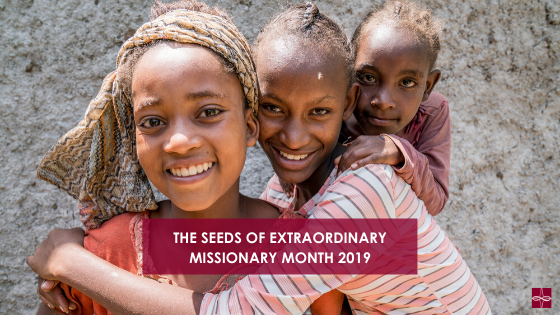

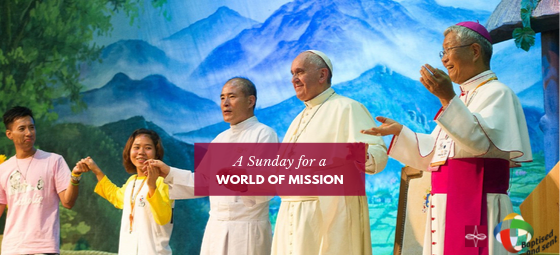

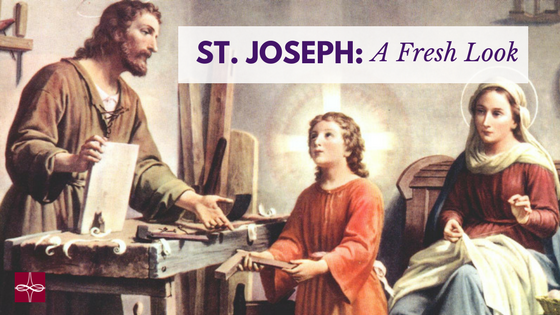
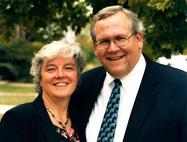
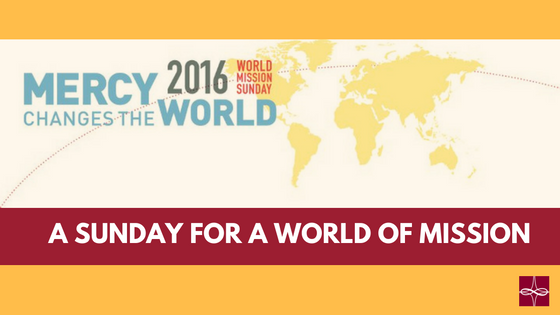

 RSS Feed
RSS Feed